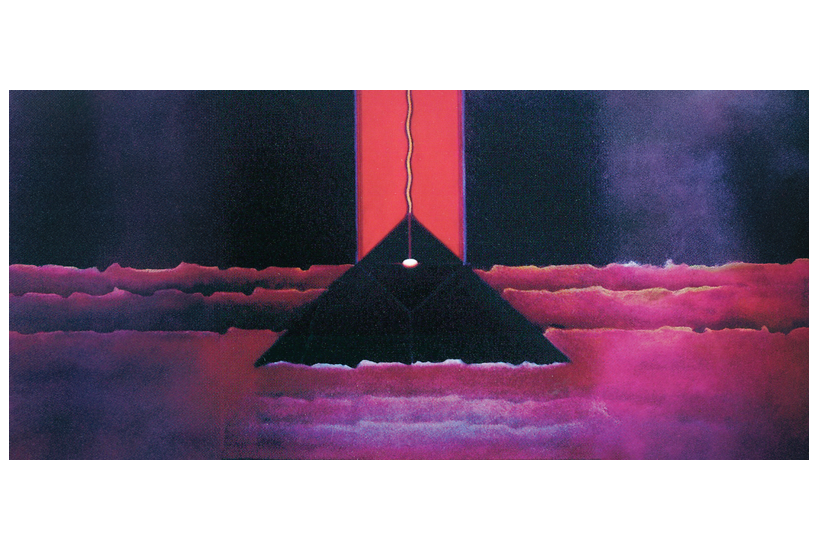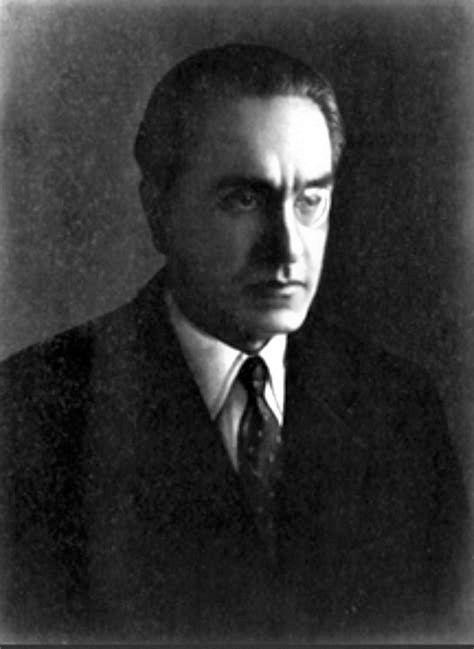“A dazzling and interesting, but very dangerous author . . .”
—Hermann Hesse, author of Siddhartha
“Evola is one of the most interesting minds of the [world] war generation. He has a really astounding knowledge at his disposal.”
—Mircea Eliade, author of The Sacred and the Profane
“It is one of Evola’s greatest merits that he combines a prodigious wealth of erudite detail with the gift of isolating from their local conditioning the ideas or disciplines that are of value to us.”
—Marguerite Yourcenar, author of Memoirs of Hadrian
“But this at least one cannot take away from [Evola]: his consistency, a universal education, and the courage to make a daring, sovereign formulation.”
—Gerd-Klaus Kaltenbrunner, in Die Welt
“One of the most difficult and ambiguous figures in modern esotericism . . .”
—Richard Smoley, in Parabola
“His was not the spirituality of piety and mysticism, but the aspiration to what he understood to be the highest calling of man: the identity of Self and Absolute.”
—Dr. H. T. Hansen, from the preface to Men Among the Ruins
|
|
Julius Evola (1898–1974), the Italian Traditionalist philosopher, continues to be a controversial and misunderstood figure, both in his lifetime and the present day. The latest eruption in the Evola controversy has taken place on Inner Traditions’ social media. This is the same controversy that plagued Evola during his lifetime and continues to challenge people now. Along with being a savant of both Eastern and Western esotericism, Evola was also a fierce and vocal critic of the modern world. |
Approach ye genuine philosophic few,
The Pythagoric Life belongs to you:
But far, far off ye vulgar herd profane;
For Wisdom’s voice is heard by you in vain:
And you, Mind’s lowest link, and darksome end,
Good Rulers, Customs, Laws, alone can mend.
This stern address with which Thomas Taylor, the great Platonist, prefaced his translation of Iamblichus’ Life of Pythagoras would likely reflect Evola’s view on his present-day detractors. He was an elitist. He was against democracy, the religions of Abraham, and Egalitarianism—in short, against modern belief systems. His views start with Plato, whose dialogues he absorbed as a young man along with copious philosophic readings in Latin, French, and German. Evola can be debated and criticized, which has been done extensively by scholars, journalists, and philosophers. However, his importance as a philosopher of the Traditional worldview cannot be denied.
To read Evola requires a depth of knowledge and appreciation for other cultures, languages, philosophies, the esoteric, and world history that is not readily present today. In fact, the controversy around Evola’s work perfectly illustrates why Evola revolted against the modern world.
We at Inner Traditions do not agree with all of Evola’s ideas. Further, Evola’s ideas developed from his earliest days as a Dadaist through his defense and promotion of the ideas of Tradition. We publish Evola because he is one of the most significant esoteric philosophers of the twentieth century and has left us a very important oeuvre.
For many the attraction of the work of Julius Evola is his ability to expound complicated esoteric doctrines from both the East and the West with outstanding clarity and an intellectual rigor that Joscelyn Godwin, translator of The Complete Introduction to Magic, described as cutting “like a razor through the sloppy thinking and sentimentality prevalent in religious and New Age types alike.” Highly prized by hermetic and spiritual philosophers, Evola’s books are initiatory works that have the power to elevate the individual from mundane existence into a higher dimensional perspective, where the inner workings of the fundamental principles of self-realization are made visible.
Naturally, it is much easier to judge Evola than to engage with his ideas. Reading and understanding Evola is hard work. His ideas and his path through the world are not for everyone. Given his fierce attack on modern ideas and institutions, he is anathema to some contemporary ideologues. Nevertheless, whatever your philosophical orientation, Evola’s works are unparalleled in their depth.
Evola has been accused of being a Nazi and Fascist even though he has written extensively against these two ideologies. His writings, like many occult works, have been used by extremists to further their vile and hateful actions, personalities, and doctrines. It is our understanding, based on Evola’s own writings and that of scholars who have extensively reviewed his life and work, as well as from people who knew him in his later years, that he was neither a Nazi nor a Fascist. In Evola’s words: “We are in open opposition to a certain mythos: the one that wants to turn spirituality and culture into a realm that is dependent on politics. We, on the other hand, claim that it is politics that must be dependent on spirituality and culture.”
Evola’s political endeavors as well as his views on race are thoroughly and expertly treated in the introduction to Evola’s Men Among the Ruins. In addition, Gianfranco de Turris’s biography of Evola clarifies Evola’s relations with Nazism and Fascism, revealing how he rejected both while still maintaining a worldview that would shock many a modern reader.
It saddens us to see the vitriol and name-calling that has surrounded the Evola social media eruption. Accusations and name-calling yield only negative emotions and likes. Engaging with Evola’s ideas, even if you do not agree with them, can yield insight. Further, the present social media controversy has no intellectual or critical substance. Evola’s present detractors’ due diligence extends as far as an entry on Wikipedia, some magazine articles, and a few blog posts. We can’t help but appreciate the irony, as one commenter pointed out, of “witches going on an Evola witch-hunt.”
For those who wish to better understand the herd mentality of social media, and the nature of its leaders, we recommend reading The Crowd by Gustave Le Bon, published in 1896, which was a major influence on Evola’s young mind. We will also include some links at the end of this post for those who wish to further their knowledge of Evola as a historical figure and engage with the ideas of this brilliant philosopher of Tradition.
Given the extent of the comments that appear on social media and prior publications that have reviewed Evola’s life and contextualized his work in depth, we did not feel it was necessary for Professor Godwin to write a blog which would repeat what has already been extensively addressed. However, he did have the following to say about some of the recent social media posts:
“Urging the banning of books puts one in very bad company, and in the case of Introduction to Magic shows that one has simply not opened a collection that includes Anthroposophists, Kremmerzians, social scientists, a psychoanalyst, literary critics, orientalists, poets, translators of Tibetan and Greek texts, and even an Alpinist. One looks in vain for a single politically oriented contribution.”
—Joscelyn Godwin, professor emeritus, musicologist, translator of Julius Evola, Christian Rosenkreutz, Fabre d’Olivet, René Guénon, Francesco Colonna, and other renowned writers, as well as author of many books including The Golden Thread, The Mystery of the Seven Vowels, The Greater and Lesser Worlds of Robert Fludd, The Harmony of the Spheres, Cosmic Music, Harmonies of Heaven and Earth, and Athanasius Kircher’s Theatre of the World.
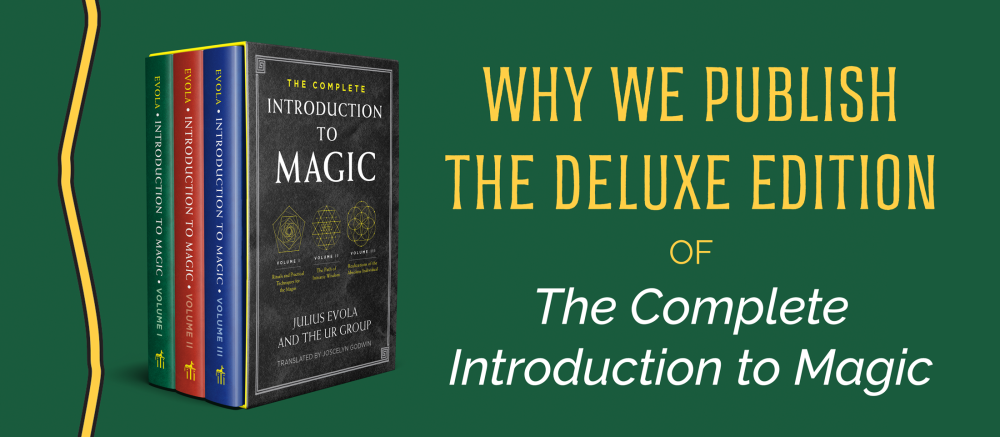
At Inner Traditions we are devotees of the printed book. Book publishing is a vocation for us. It has taken us more than 40 years to translate and publish the complete esoteric opus of Julius Evola. This long and difficult process ended with the publication of the third volume of Introduction to Magic in 2021. At the request of the many students of Evola, and as a celebration of completing this publishing journey, we have produced a deluxe edition of the magnum opus, The Complete Introduction to Magic, by Julius Evola and the Ur Group.
Representing a unique compilation of important esoteric thinking from the 20th century, as well as rare translations, the three volumes of The Complete Introduction to Magic contain the writings of the Ur group, an eclectic collection of Italian esotericists. The purpose of this group was to study and practice ancient rituals from the mystery traditions of the world, both East and West. The group plumbed esoteric traditions from around the world in their search for an initiatory path that would offer practitioners complete self-transformation. In addition to the texts written by the group members, Ur offered the first Italian translations of the Apathanathismos and excerpts from the works of Sanskrit scholar Arthur Avalon (Sir John Woodruffe), whose long correspondence with Evola contributed greatly to his profound understanding of the Buddhist Pali Canon and Tantra, which is fully on display in his books The Doctrine of Awakening and The Yoga of Power.
The writings of the Ur Group are considered by many as some of the most significant to emerge from the 20th century. Years after they were first published, Evola gathered these essays into three volumes, which Inner Traditions translated from Italian and published in English as Introduction to Magic.
We trust that thoughtful readers will derive a great deal of pleasure from the beautiful production of The Complete Introduction to Magic as well as receive its transmission on the path to self-realization.
Evola on Politics, Culture, and Philosophy |
|||
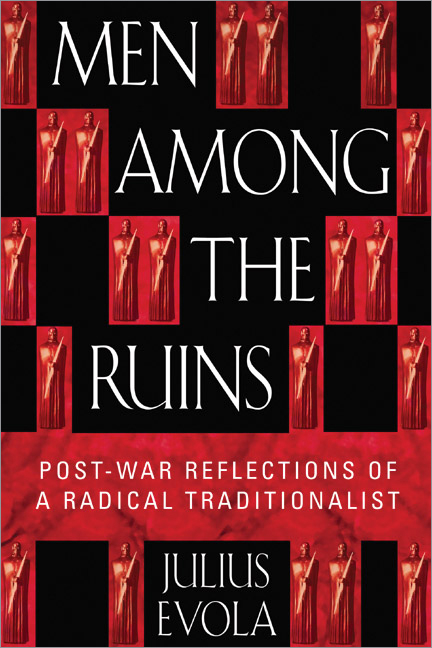 |
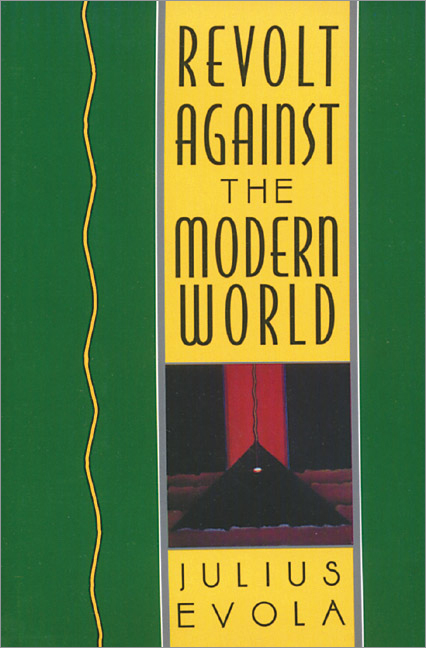 |
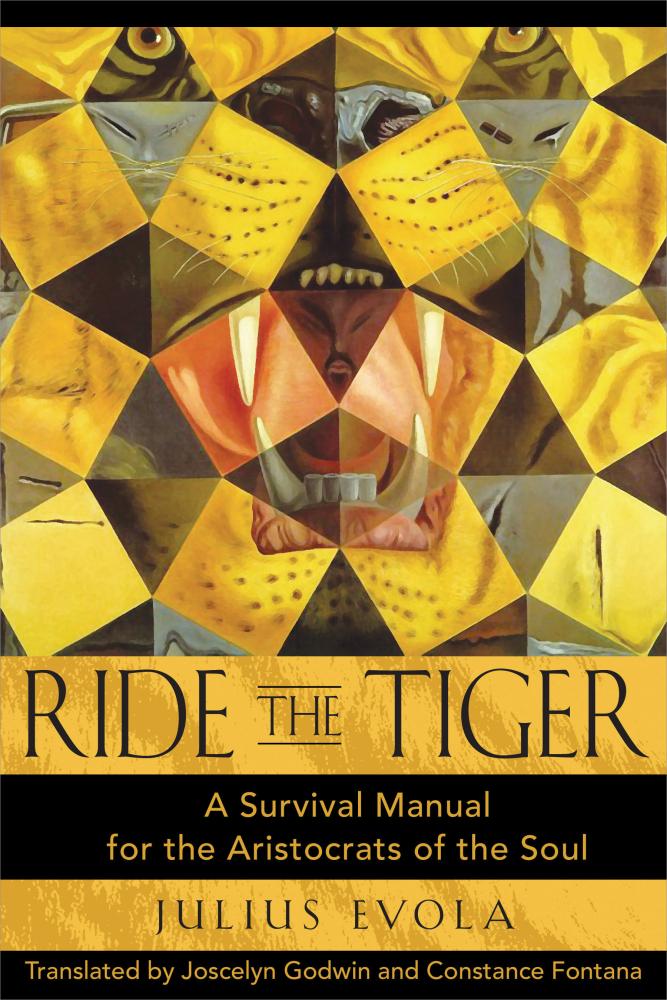 |
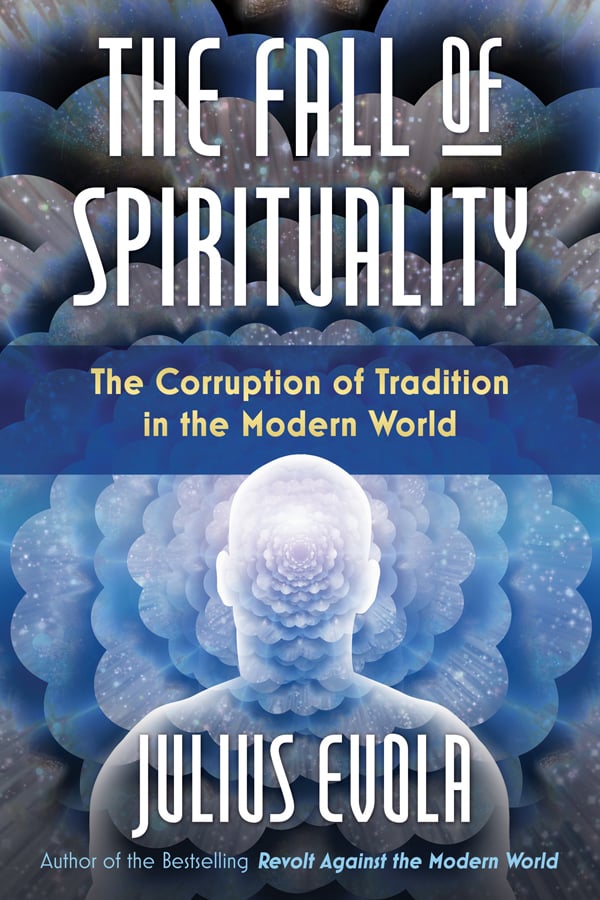 |
Evola on Magic, Hermeticism, and the Occult |
|||
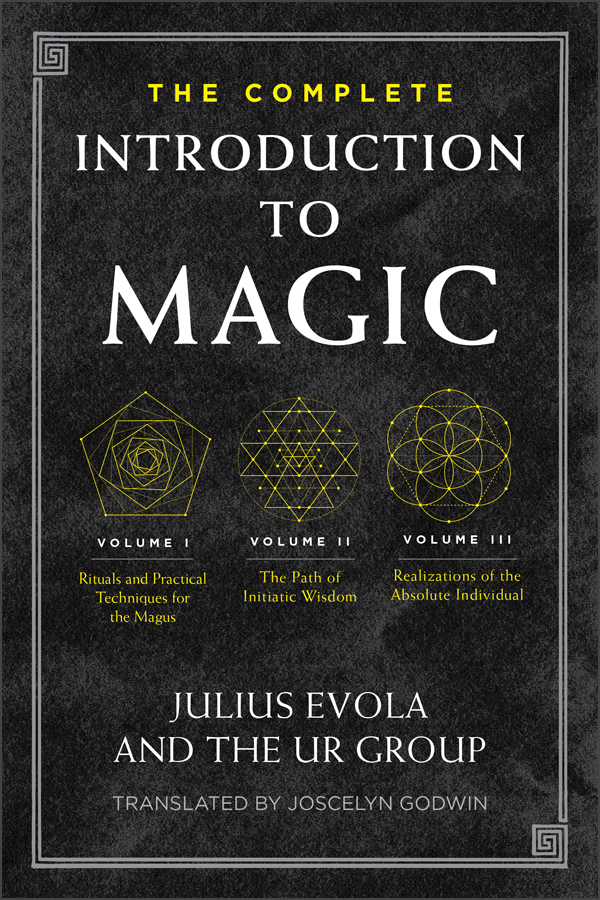 |
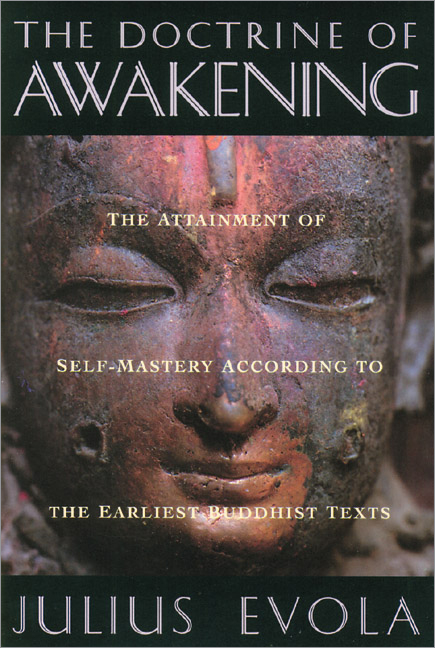 |
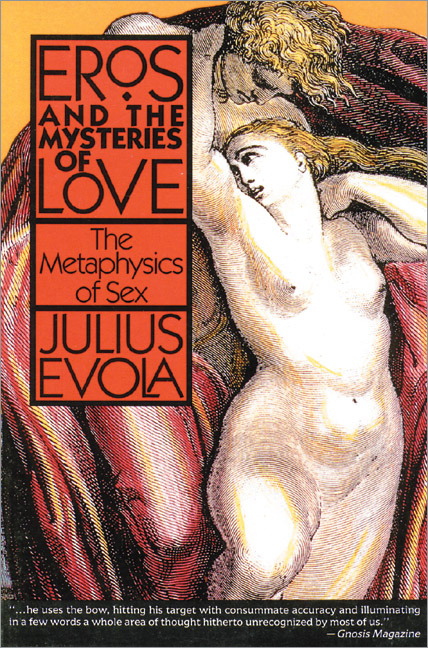 |
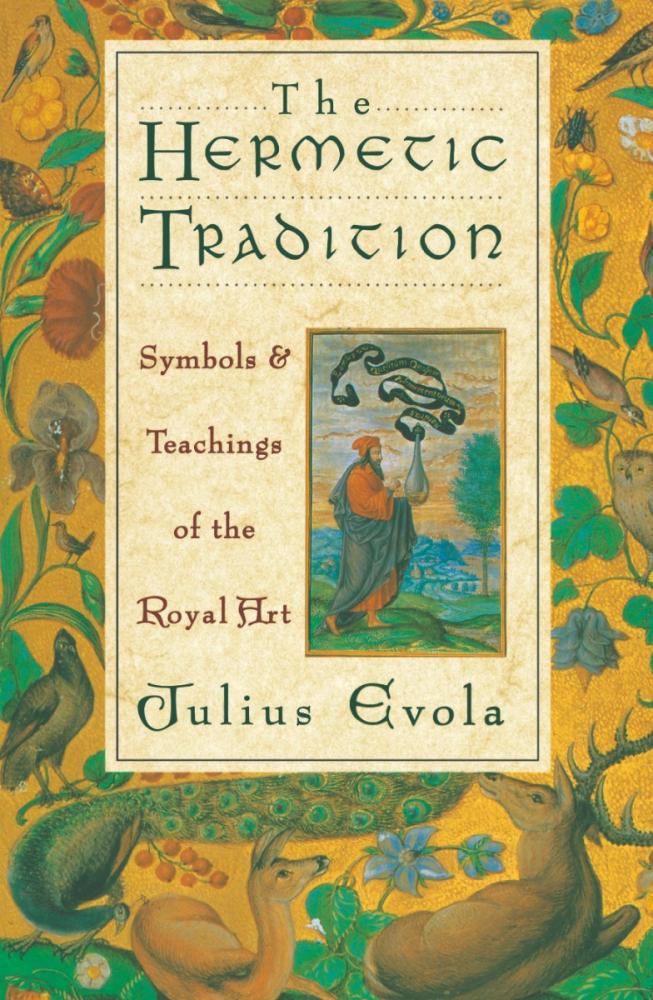 |
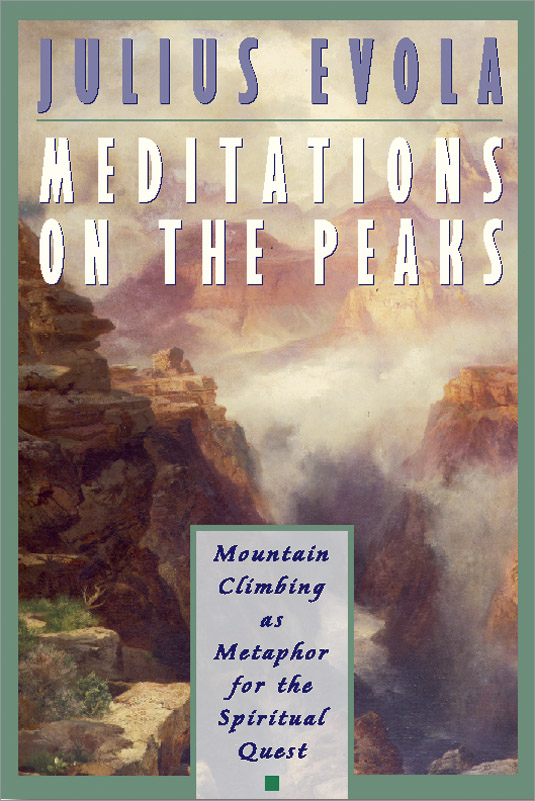 |
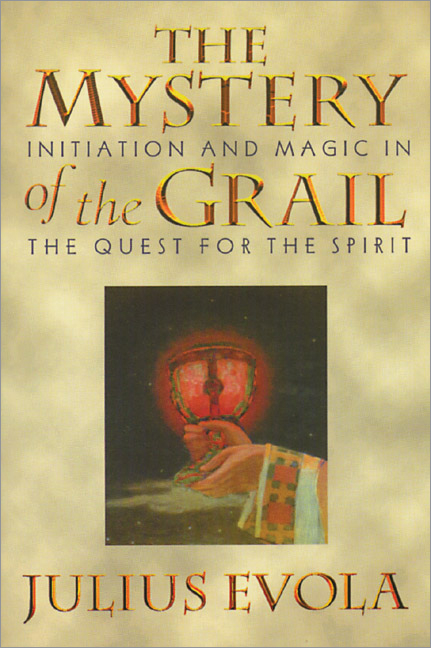 |
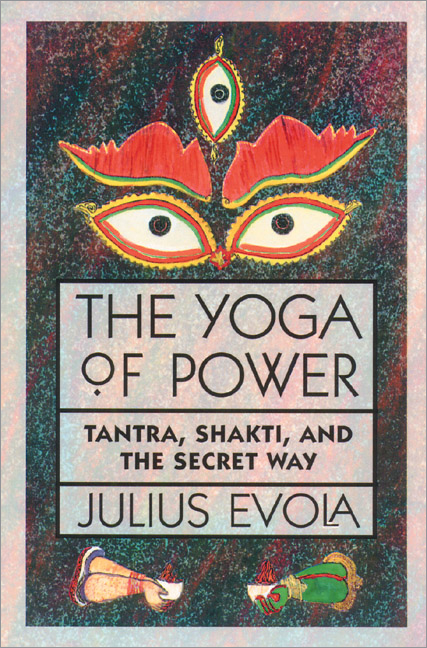 |
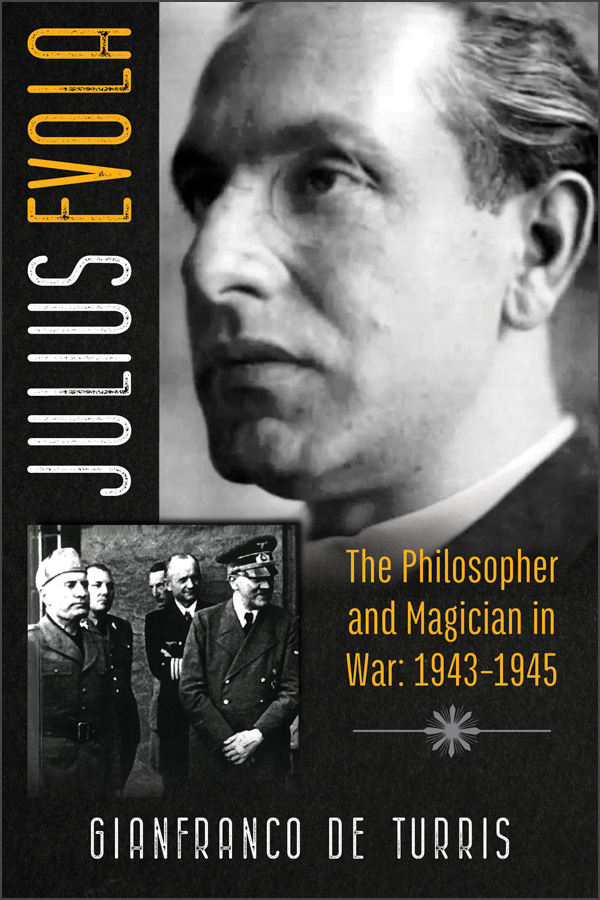 |


